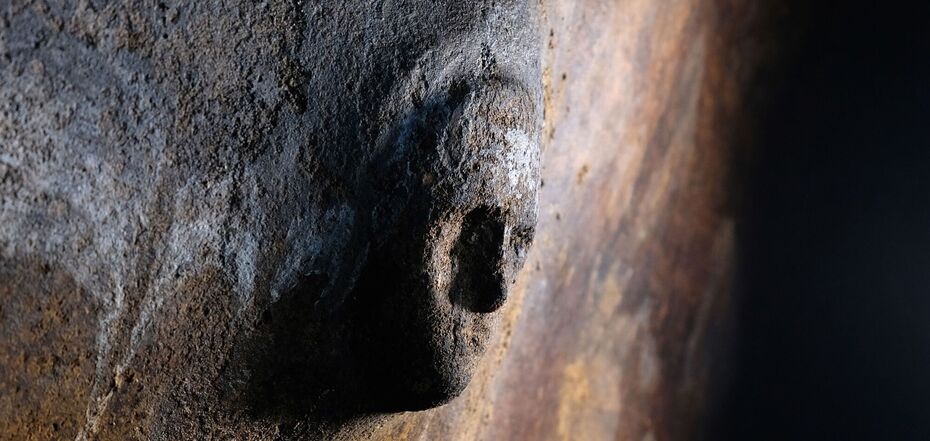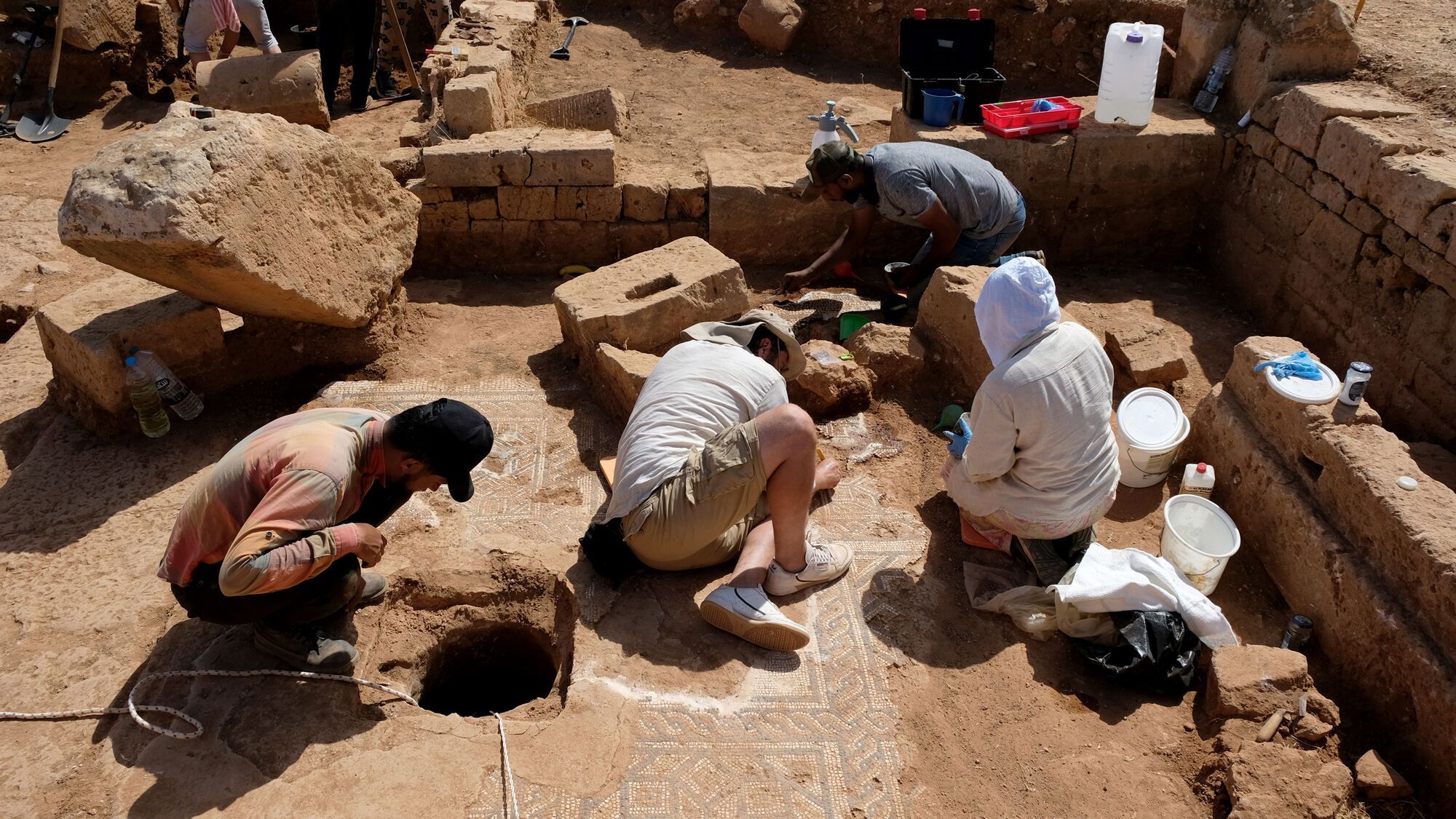News
Archaeologists have discovered a mysterious human face on the wall of a cistern in Libya. Photo
Archaeologists excavating the ancient city of Ptolemais on the Mediterranean coast of Libya have discovered an unusual find. The researchers saw a stone face on the wall of a cistern.
Scientists date the unknown object to the IV-III century BC. According to the scientists, the found face has some similarities with those carved on the walls of the Libyan sanctuary in Slonta, HeritageDaily reports.
Excavations conducted by the University of Warsaw have revealed an interesting villa. According to the scientists, in the eastern part of the ancient manor, they found a small courtyard surrounded by a kitchen, a staircase to the top floor, and a room with a renovated mosaic floor.
The researchers were also interested in the villa's utility area, with an advanced water supply system where a peristyle basin collected rainwater and directed it to two underground cisterns.
Upon closer inspection of one of the cisterns, the archaeologists discovered a human face sculpted from hydraulic mortar on its wall.
"The face bears some resemblance to human faces carved on the walls of a Libyan sanctuary in Slonta, located south of Cyrene. Perhaps the owner of the house or the people involved in the creation of the image were of Libyan origin," said Piotr Jaworski, head of the Polish Archaeological Mission to Ptolemais.
"Thanks to epigraphic sources, it is known that at least from the first century BC, citizenship of the Greek cities of Cyrenaica was also granted to quickly assimilated representatives of Libyan elites," Dr. Jaworski added.
It is known that Ptolemais is located in Cyrenaica, a historical region in modern northeastern Libya. According to historians, this settlement was founded by the Ptolemaic dynasty and served as a port for the city of Barca, located 24 kilometers inland.
Ptolemais came under Roman control in 96 BC and was soon incorporated into the Roman province of Crete and Cyrenaica. After the administrative reforms of Emperor Diocletian, the city became the capital of the province of Libya Upper, also known as the Libyan Pentapolis, historians say.
Only verified information is available on the OBOZ.UA Telegram channel and Viber. Do not fall for fakes!





























